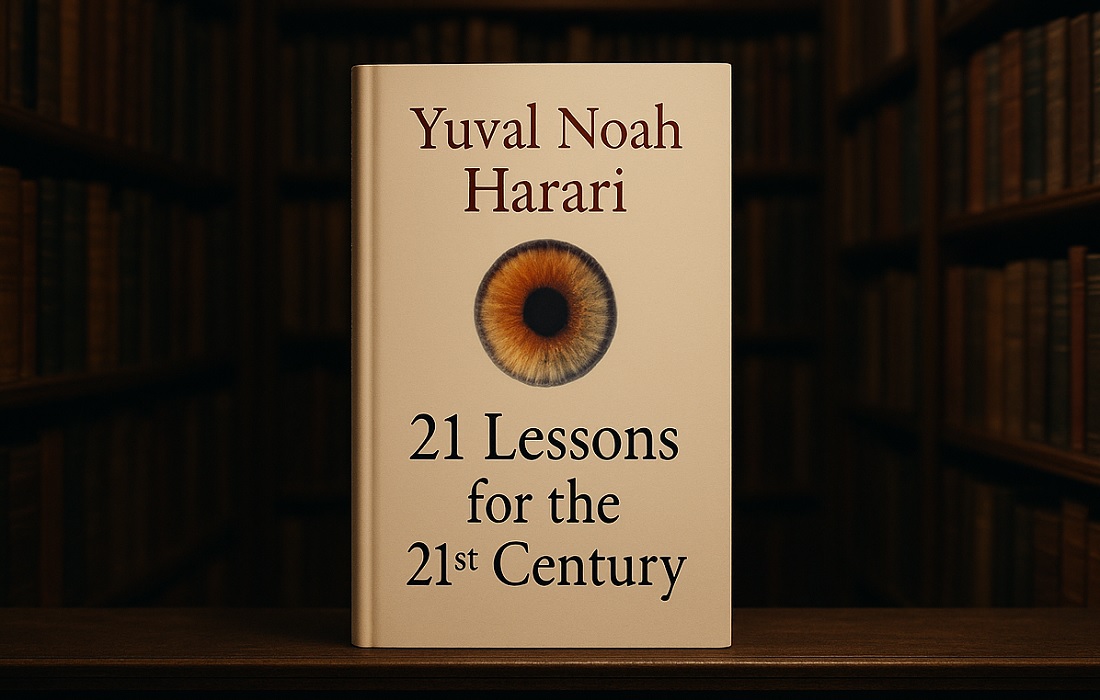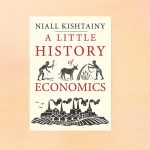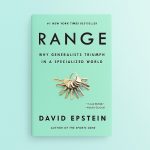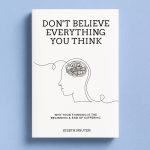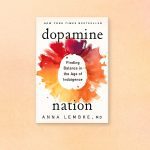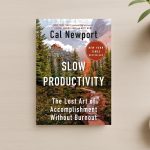21 Lessons for the 21st Century by Yuval Noah Harari is a piercing exploration of the urgent questions shaping our present. Bridging history, science, and philosophy, Harari dissects the realities of political upheaval, technological disruption, climate crises, and the erosion of shared narratives. His lessons range from the fate of liberal democracy to the personal discipline of mindfulness, offering frameworks rather than prescriptions. With clarity and intellectual provocation, Harari challenges readers to confront uncertainty, resist manipulation, and cultivate resilience in an age of bewilderment. This is both a call to global awareness and a guide for personal adaptability in turbulent times.
1. Introduction to 21 Lessons for the 21st Century by Yuval Noah Harari
21 Lessons for the 21st Century by Yuval Noah Harari (2018) examines the urgent challenges, societal shifts, and moral quandaries of our turbulent present. Whereas Sapiens explored humanity’s past and Homo Deus speculated on its potential future, 21 Lessons narrows the focus to the now – the social, technological, political, and existential dynamics shaping daily life in the early 21st century.
Harari’s central aim is clarity. He argues that the modern human mind is assaulted by disorienting waves of information, much of it irrelevant or deceptive, leaving people vulnerable to manipulation and poor decision-making. The “lessons” he offers are neither prescriptions for utopia nor rigid ideological programs; instead, they are frameworks for analysis and reflection in a world defined by volatility, complexity, and uncertainty.
Structured in five thematic parts – The Technological Challenge, The Political Challenge, Despair and Hope, Truth, and Resilience – the book distills sweeping historical patterns and cutting-edge research into accessible but challenging ideas.
2. Author Biography: Yuval Noah Harari
– Born: 1976 in Kiryat Ata, Israel.
– Education: PhD in History from the University of Oxford; now lectures at the Hebrew University of Jerusalem.
– Scholarship Focus: World history, macro-historical processes, and human evolution.
– Major Works Before 2018:
– Sapiens: A Brief History of Humankind (2014) – explored the evolutionary and cultural journey of Homo sapiens.
– Homo Deus: A Brief History of Tomorrow (2015) – examined future technological and ethical dilemmas.
– Public Impact: Harari has become a global public intellectual, engaging with governments, corporations, and NGOs, often addressing the interplay of technology, politics, and ethics.
– Distinctive Features: Integrates history, science, and philosophy with accessible prose, though his works also attract critiques for speculative leaps or ideological leanings.
3. Structure of the Book
Part I – The Technological Challenge
Examines how rapid advances in biotechnology and information technology disrupt economies, societies, and personal freedoms.
Part II – The Political Challenge
Addresses shifts in nationalism, civilization, religion, and global cooperation in an era of interconnected problems.
Part III – Despair and Hope
Considers terrorism, war, humility, and secularism in the context of global instability and human psychology.
Part IV – Truth
Analyzes the erosion of shared narratives under “post-truth” politics, misinformation, and shifting concepts of justice.
Part V – Resilience
Explores education, meaning, and meditation as buffers against overwhelm in a fast-changing, story-fractured world.
4. Part I – The Technological Challenge
Disillusionment
The “liberal story” – democracy, free markets, and human rights as a path to peace and prosperity – appeared dominant in the early 1990s. Yet post-2008 crises, Brexit, and the rise of authoritarian populism have undermined this confidence. Technological revolutions challenge political systems designed for the industrial age, leaving leaders ill-prepared for AI, automation, and biotech upheavals.
Work
Automation will disrupt the labor market in unprecedented ways. Harari warns of a “useless class” – individuals unable to adapt to new roles in an AI-driven economy. Job retraining will be constant, but emotional resilience and lifelong learning will be crucial to remain relevant. Social structures, including welfare systems, must adapt to prevent instability.
Liberty
Surveillance technologies, fueled by Big Data, threaten privacy and potentially liberty itself. Biometric sensors, AI monitoring, and algorithmic profiling could enable digital dictatorships surpassing anything in history, concentrating political and economic control.
Equality
Data ownership will define future inequality. Whoever controls the most data has the advantage in AI development, leading to “data colonialism” where a few corporations or nations dominate, exacerbating wealth gaps.
Key takeaway from Part I: Without proactive governance, the convergence of biotech and infotech can erode freedom and deepen inequality on a global scale.
5. Part II – The Political Challenge
Community
Despite digital interconnection, physical and cultural anchors still matter. Harari stresses humans “have bodies” and exist in local contexts. Online engagement can’t fully substitute for embodied community life.
Civilization
Humanity increasingly forms a single, interconnected civilization – economically and technologically – even as cultural and political divisions persist. Harari highlights the risks of thinking in separable “civilizations” when challenges like climate change require unified responses.
Nationalism
Global problems (pandemics, ecological crises, nuclear proliferation) demand cooperation beyond national borders. Nationalism can be benign when unifying populations for mutual care, but is inadequate for addressing transnational risks.
Religion
Religious traditions still influence politics, often serving nationalist agendas. Harari argues that in modern governance, religion’s survival often depends on aligning with state power rather than opposing it.
Immigration
Migration challenges force societies to reconcile three conditions: host nations must accept immigrants, immigrants must integrate, and all must uphold liberal values. Failure to satisfy all three destabilizes politics and fuels xenophobia.
Key takeaway from Part II: National political frameworks are ill-suited for inherently global problems, yet scaling cooperation remains politically difficult.
6. Part III – Despair and Hope
Terrorism
Terrorism is psychological warfare: it aims to manipulate perception, not destroy militarily. Politically, overreactions empower terrorist agendas. Harari advocates perspective – avoid inflating isolated incidents into existential threats.
War
While large-scale wars are less common than historically, tensions among major powers (U.S., China, Russia) persist. Harari warns that new domains like cyberspace increase complexity, and nuclear risk remains.
Humility
No culture is the singular center of the universe. Recognizing that all human groups contain flaws and that wisdom exists globally helps avoid chauvinism.
God
Religious belief systems persist, yet they too evolve, often accommodating science and political realities.
Secularism
Secularism isn’t nihilism; it rests on commitment to truth, compassion, equality, and freedom. Harari frames secular ethics as adaptable and evidence-based.
Key takeaway from Part III: Managing fear, cultivating humility, and grounding ethics in shared human values rather than absolute dogma are crucial for stability.
7. Part IV – Truth
Ignorance
We know less than we think. In a complex, rapidly changing world, modesty about our knowledge is necessary.
Justice
Our legal and moral frameworks are historically contingent and may lag behind new realities (e.g., environmental justice, digital rights).
Post-Truth
Disinformation is not new, but it spreads faster in the internet era. Social media amplifies emotional content over factual accuracy, fragmenting shared narratives.
Science Fiction
Popular portrayals of AI and space exploration often obscure the real and present challenges – climate change, cyberwar, biotech ethics – that deserve more urgent attention.
Key takeaway from Part IV: Truth becomes fragile when institutions fail to sustain shared understanding, making media literacy and institutional trust paramount.
8. Part V – Resilience
Education
Future-proof education must focus less on static knowledge and more on learning how to learn, adapt, and manage mental states. Interdisciplinary thinking will be critical.
Meaning
In a world where traditional stories (nationalism, religion) lose force, individuals must craft personal meaning. Harari warns against outsourcing meaning-making to ideological or commercial powers.
Meditation
Mindfulness and meditation are presented not as spiritual dogma but as tools for observing mental processes, improving clarity, and resisting manipulation in an age of information overload.
Key takeaway from Part V: Resilience in the 21st century hinges on adaptive learning, deliberate meaning-making, and mental self-awareness.
9. Overarching Themes Across the Book
- The Collapse of Old Narratives: Modernity dismantled many traditional frameworks; insufficient new narratives have emerged.
- Technological Acceleration: Biotech and AI are outpacing political, educational, and legal adaptation.
- Global Interdependence: Pandemics, climate issues, and economic systems bind nations together – yet political fragmentation persists.
- The Mind as Battleground: Attention, beliefs, and decision-making are increasingly shaped by external algorithmic forces.
- Ethics Without Absolutes: Harari promotes a secular, evidence-based foundation for ethics, though he acknowledges this is contentious.
10. Integration with Contemporary Context
Artificial Intelligence & Work: Post-2018 developments (e.g., generative AI in the 2020s) have reinforced Harari’s warnings – automation now encroaches on creative and knowledge work, not just routine labor.
Global Health Crises: COVID-19 illustrated both the potential and failures of global cooperation, echoing his calls for unified responses to transnational threats.
Geopolitics & War: Renewed conflicts and nuclear rhetoric highlight the fragility Harari identifies in “peace between great powers.”
Information Ecosystems: The rise of deepfakes and personalized news feeds increases the urgency of media literacy – a skill he frames as a civic necessity.
11. Critiques of the Book
– Breadth Over Depth: While covering vast ground, some chapters offer cursory exploration rather than sustained argument or evidence.
– Speculation: As with Homo Deus, Harari’s foresight is heuristic rather than predictive; critics say certain risks are overstated or insufficiently contextualized.
– Western-Centric Framing: Despite efforts at inclusivity, examples and concerns often resonate most with Western audiences.
– Practicality: The book’s “lessons” are primarily conceptual; readers seeking concrete policy or personal steps may find the guidance abstract.
12. Conclusion
Where Sapiens and Homo Deus captivated through sweeping narrative arcs of past and future, 21 Lessons offers a panoramic diagnosis of the present. Its enduring value lies in:
- Holistic Framing: Linking daily life to planetary systems and historical processes.
- Cognitive Tools: Encouraging doubt, humility, and adaptability in thinking.
- Ethical Provocation: Refusing easy answers, inviting readers to wrestle with complexity.
For a reader in 2025 or beyond, the book remains a relevant intellectual companion for navigating uncertainty – not because it holds definitive truth, but because it trains the mind to interrogate assumptions in a fast-changing world.
If you found this summary helpful, please share it or leave a comment below.

